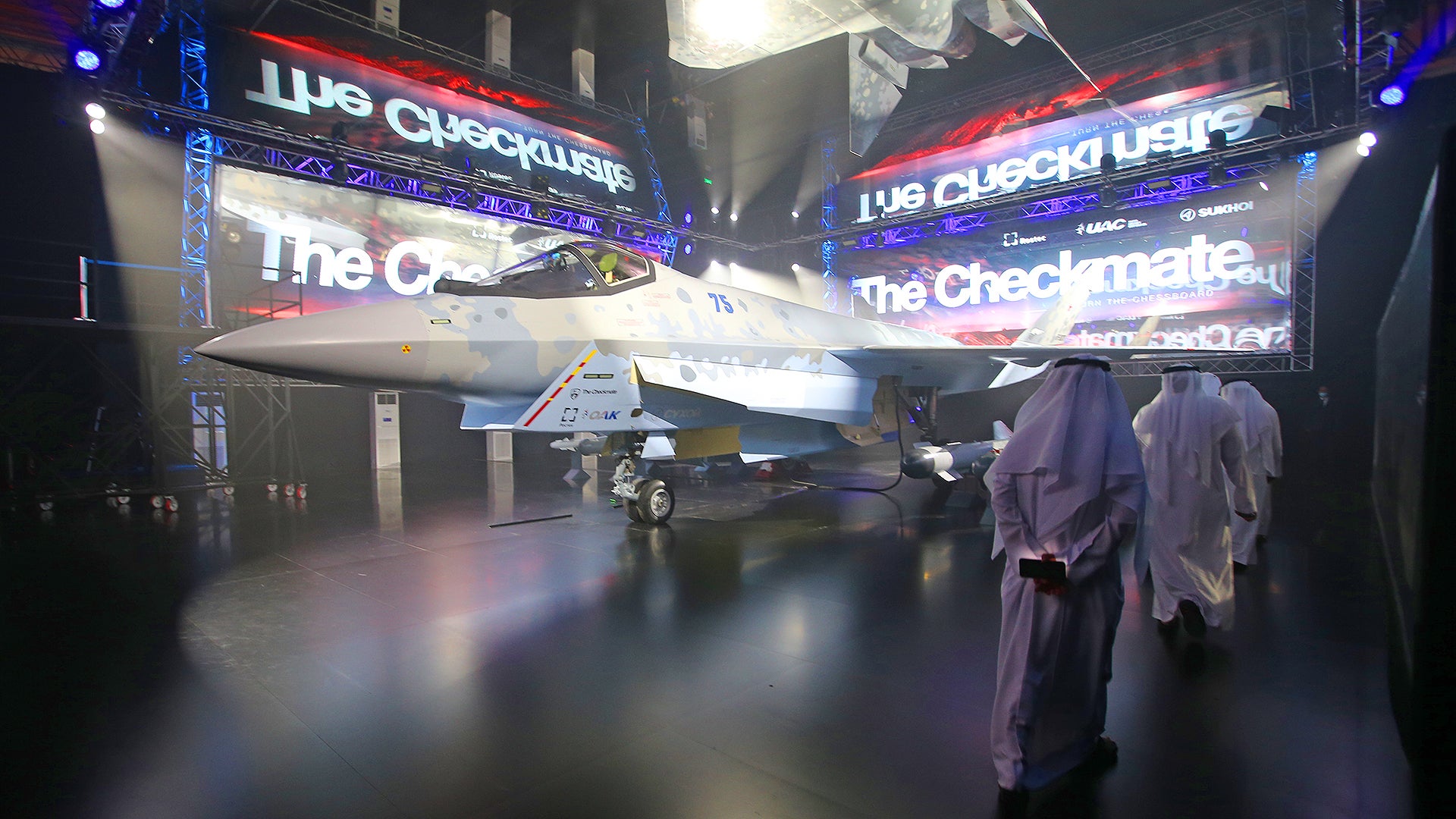Developments in the Sukhoi Checkmate new-generation single-engine fighter program are now coming in rapid succession, with the announcement that the first flying prototypes are now under construction. At the same time, there are reports in the Russian media of talks on selling the jet to the Russian military, while officials are also hopeful that the United Arab Emirates (UAE) could become more deeply involved in the program.
The Checkmate is currently making its foreign debut at the Dubai Airshow where officials from the United Aircraft Corporation, the conglomerate responsible for the Sukhoi design bureau, have been talking up the prospects of the new fighter. This is all part of an extensive public relations drive that included a glitzy presentation ceremony in Dubai and even the launch of a signature perfume to accompany the jet’s appearance.
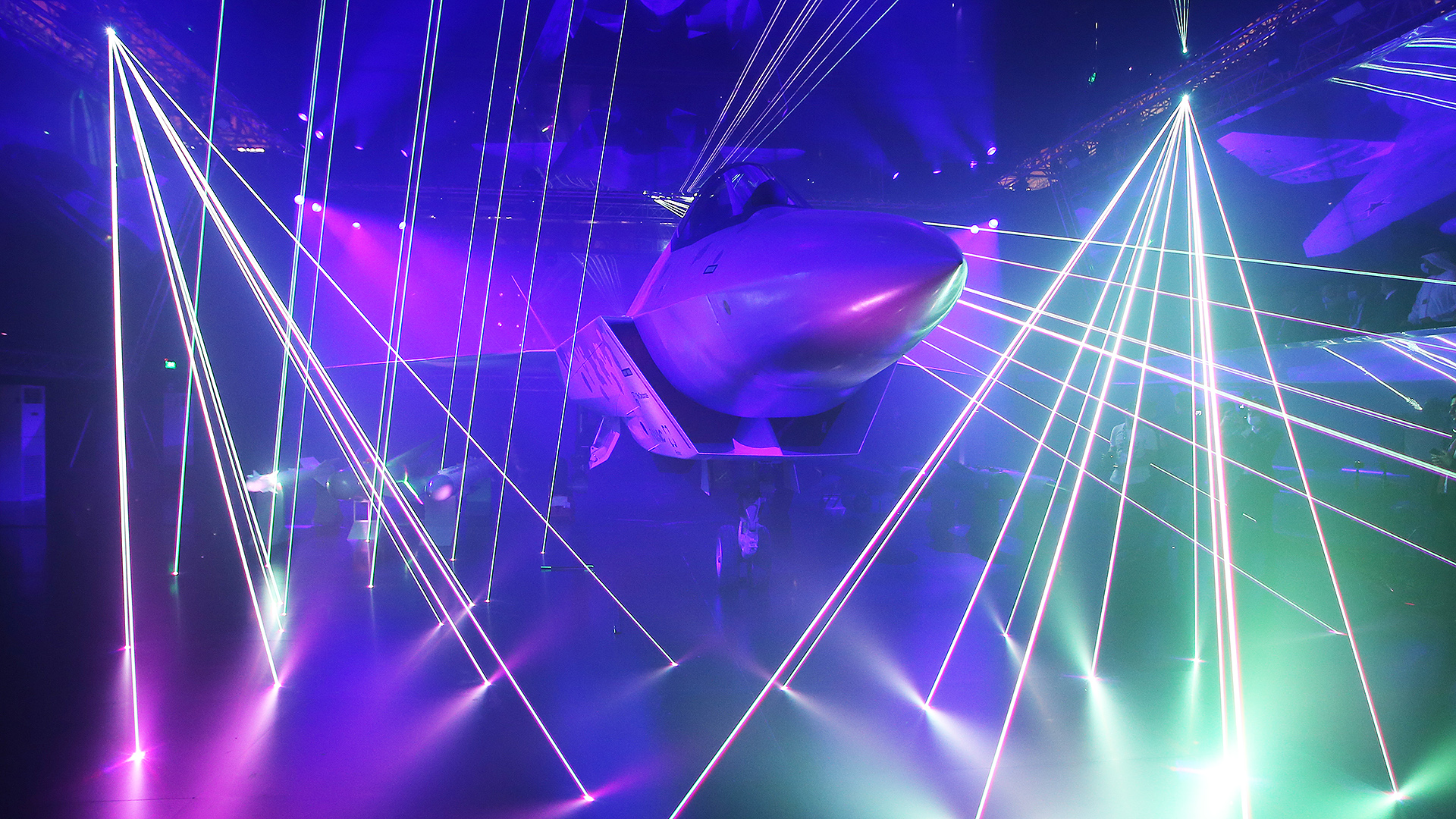
Potentially most critical to the future of the Checkmate is the revelation that more than one flying prototype is now under construction at UAC’s KnAAPO facility in the manufacturing plant at Komsomolsk-on-Amur, which also builds certain members of the Sukhoi Flanker multirole fighter family and the more advanced Su-57 Felon. This fact was confirmed by Yuri Slyusar, General Director of UAC.
“I would like to hint that the plant at Komsomolsk has started to build a few prototypes for the starting batch,” Yuri Slyusar told reporters after yesterday’s presentation ceremony, according to
Aviation Week’s Steve Trimble.
This revelation suggests that the Checkmate on display in Dubai, and which was previously unveiled at the opening of the MAKS international air show at Zhukovsky, outside Moscow, in July, is an accurate full-scale mockup, rather than a flight-capable demonstrator. It was recently intimated by officials that the display article would be converted into a flying demonstrator.
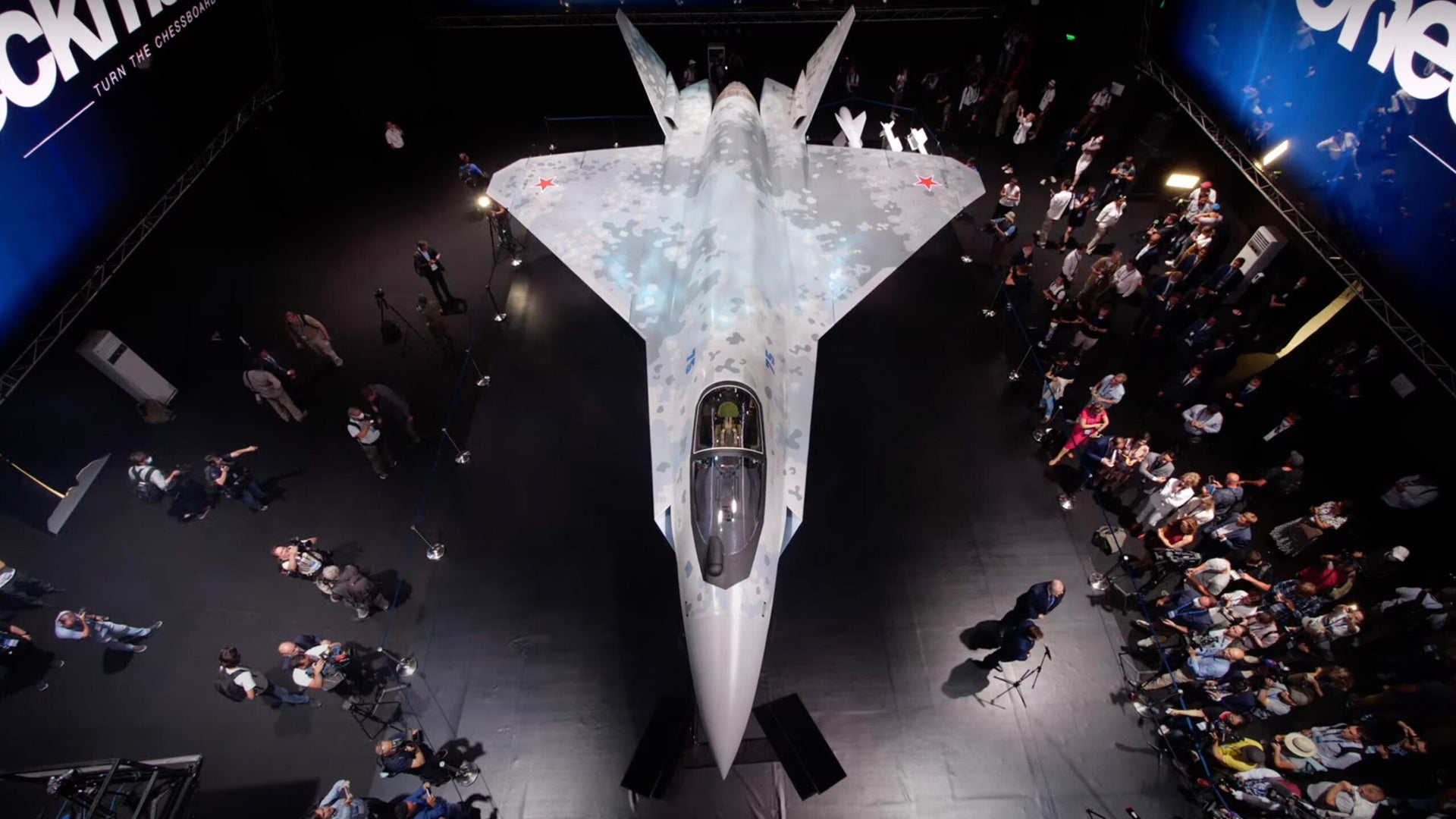
Meanwhile, Russia’s TASS state-run news agency, which recently published new details about the Checkmate’s specifications, today reported that discussions have been held between the Russian Ministry of Defense and Rostec, the country’s state-run industrial conglomerate, with a view to selling the fighter to the Russian military.
According to TASS, Rostec CEO Sergey Chemezov told reporters at Dubai that talks involved “the outlook for the deliveries of the Checkmate single-engine fifth-generation fighter jet to the [Russian] armed forces.”
“They wanted to have some, of course,” Chemezov said. “We recently discussed with the minister [of defense] that they need to come up with mission requirements stating what configuration they are looking for in the jet,” he added. “The configuration that we have made now was funded by us and the Russian Industry and Trade Ministry.”
This is the first official signal that the Russian Ministry of Defense may be interested in acquiring the Checkmate which had previously been marketed primarily as an export product. Furthermore, Moscow has almost given up on purchases of lightweight and medium-weight fighters in favor of the Flanker family and, more recently, the Su-57. Indeed, Moscow has not bought a single-engine fighter jet of any kind since the mid-1980s, when the MiG-23, MiG-27, and Su-17 were still in production, and surviving examples of these were all disposed of by frontline unit by the mid-1990s.
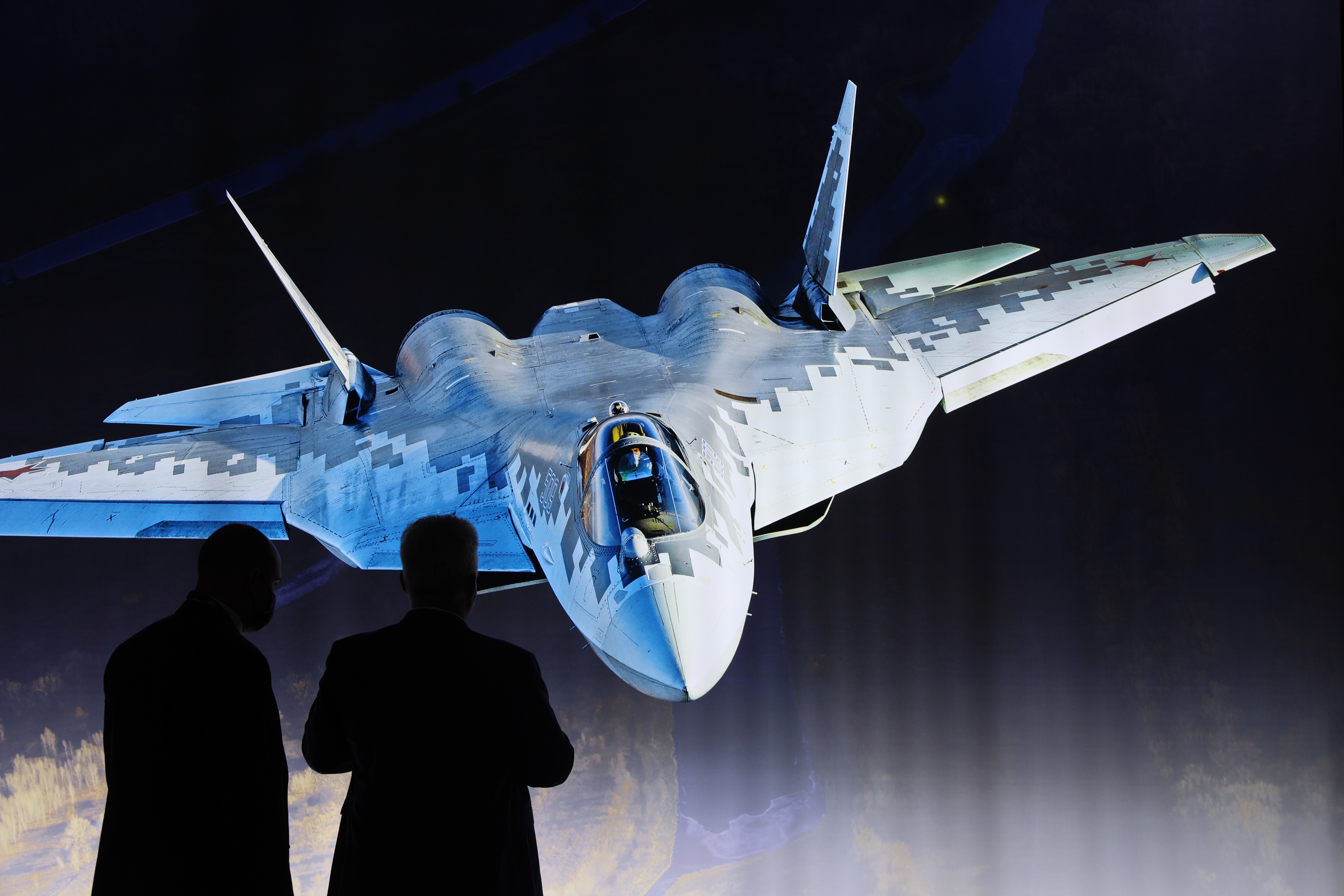
Intriguingly, it could be the case that the ministry of defense is actually looking at acquiring an unmanned version of the Checkmate, rather than the manned fighter. Chemezov said that the jet “may be converted into a UAV,” further noting that “There’s great interest in UAVs at the moment.”
UAC has recently raised the prospect of pilot-optional and unmanned Checkmate variants and last week TASS presented a digital rendering of an unmanned version of the Checkmate:
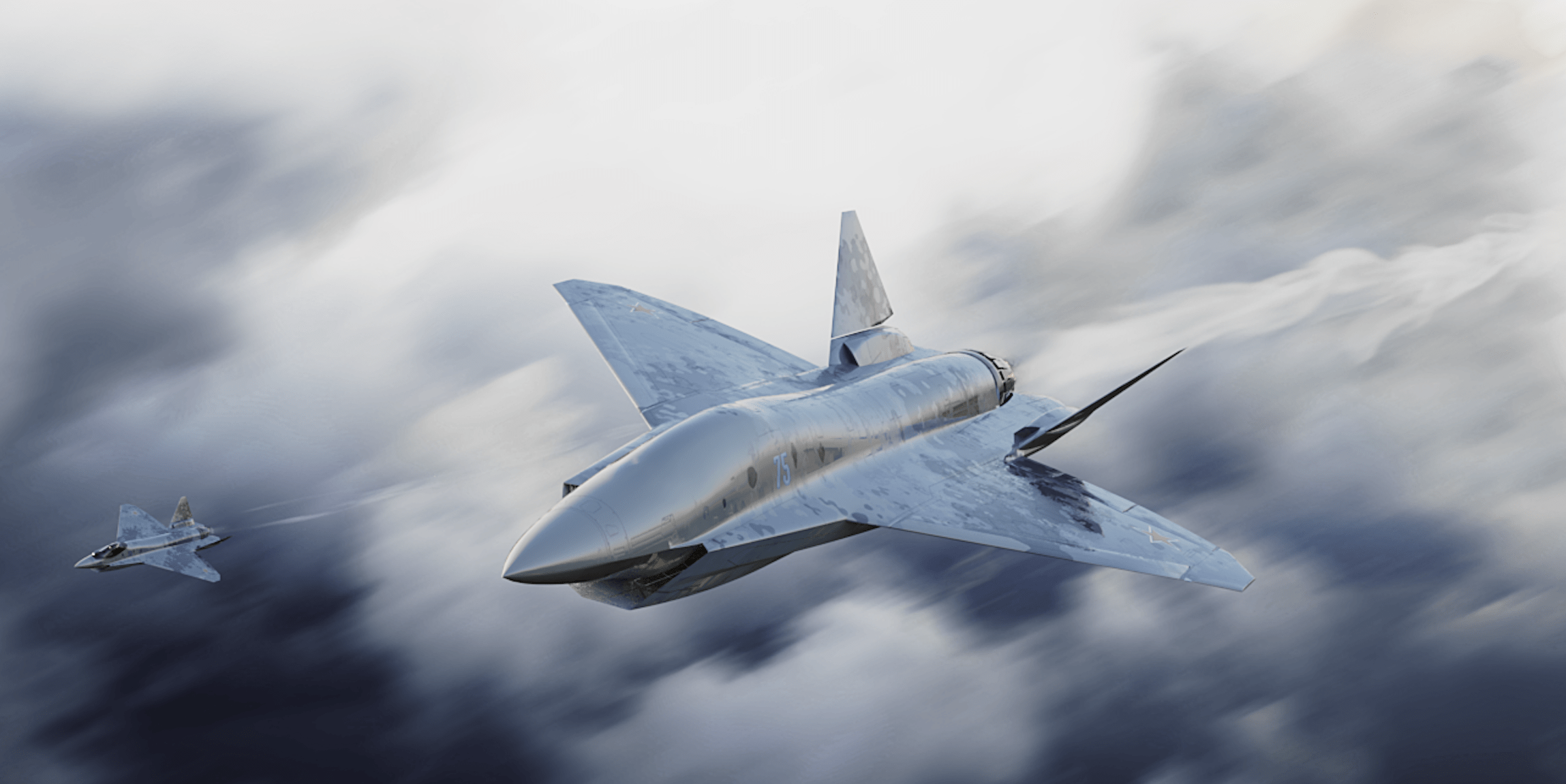
As for the purported UAE connection, this dates back at least to the IDEX exhibition in Abu Dhabi in 2017, when Rostec signed a memorandum of understanding with the UAE on the co-development of a “fifth-generation light fighter.” At the time it was not clear whether this involved a clean-sheet fighter design or a further development of the MiG-35 Fulcrum family.
Subsequently, a marketing video for the Checkmate released ahead of MAKS 2021 featured “air force pilots” from various nations, including the Emirates. At the airshow in Moscow, the UAE was identified as one of the territories targeted by the marketing campaign.
Now, according to Aviation Week, there’s hope that the UAE will become more deeply involved in the program. “I believe that by the end of the exhibition, I will be able to tell you something more definite on the issue,” Slyusar said.
The UAE fighter fleet is currently based around the F-16E/F Block 60 Desert Falcon and the Mirage 2000-9DAD/EAD, with upgrade programs for both types in the works.
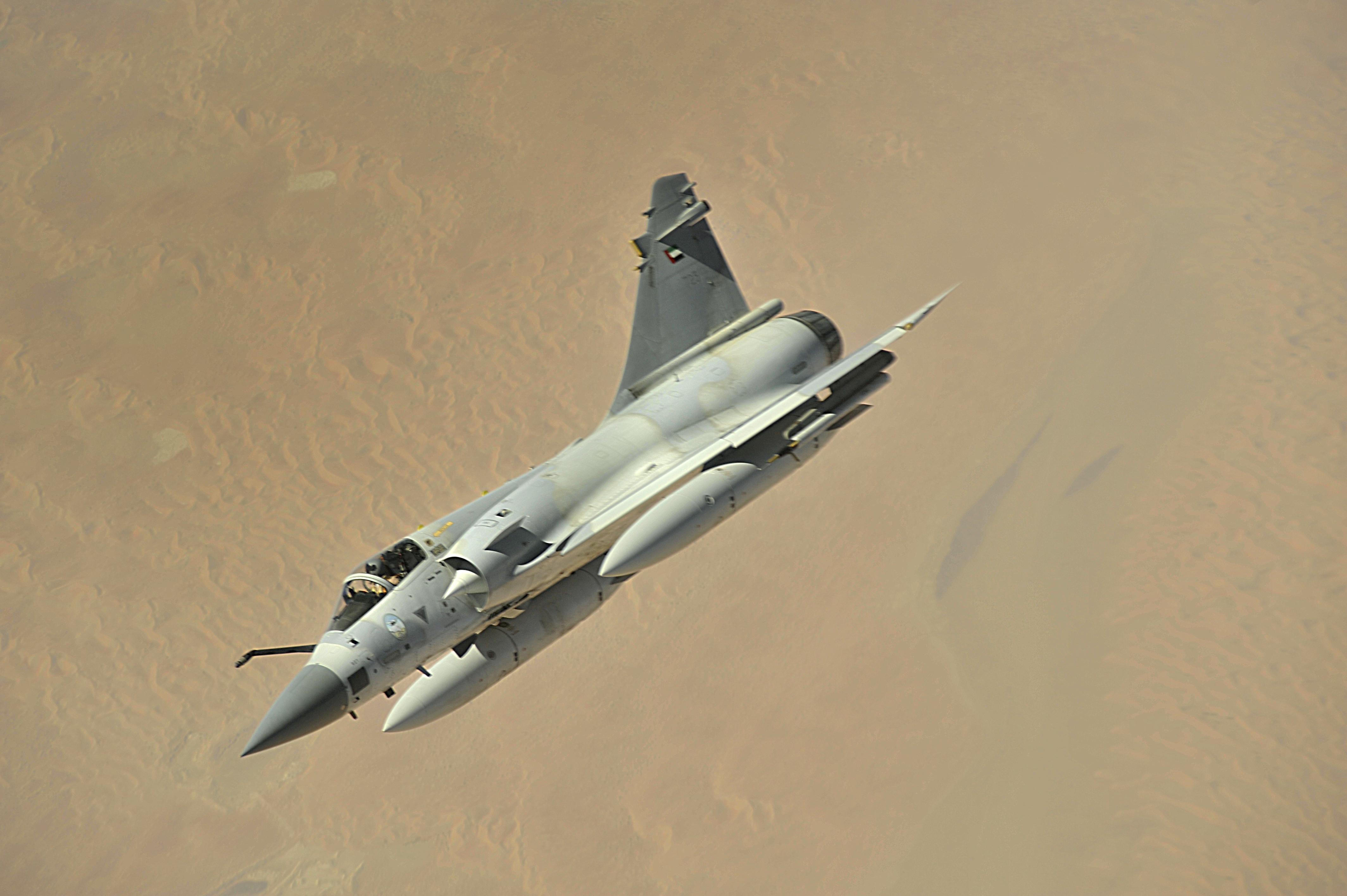
Beyond that, the UAE has plans to buy around 60 new fighters, at a cost of around $6 billion. In November last year, the U.S. State Department approved the possible Foreign Military Sale of as many as 50 F-35A stealth fighters as part of a package of arms valued at up to $23.37 billion.
No firm contracts have been signed, however, and it’s possible the Checkmate could fill the requirement. What’s more, UAC boasts a unit price of just $30 million compared to around $90 million for the F-35. This is very much the starting price for the Checkmate, however, and the actual price tag will “vary depending on the configuration.” As we have observed in the recent past, however, the possibility of actually hitting this price point seems very far-fetched, at this stage.
The parent company also seems to be making a fairly deliberate pitch to Turkey, which has previously been linked with both the Su-35 and the Su-57, although Ankara is also pursuing its own advanced indigenous fighter project. A video uploaded to the UAC website to coincide with the Dubai Airshow shows a Checkmate flying over a line-up of F-16 and F-4 fighters, a combination currently flown by Turkey. The same video includes an aerial engagement with an F-35, as well as an apparent reference to the Autonomic Logistics Information System (ALIS) that serves as the information infrastructure for the F-35 and which has had various well-publicized difficulties, especially for foreign operators, and which is now slated for replacement.
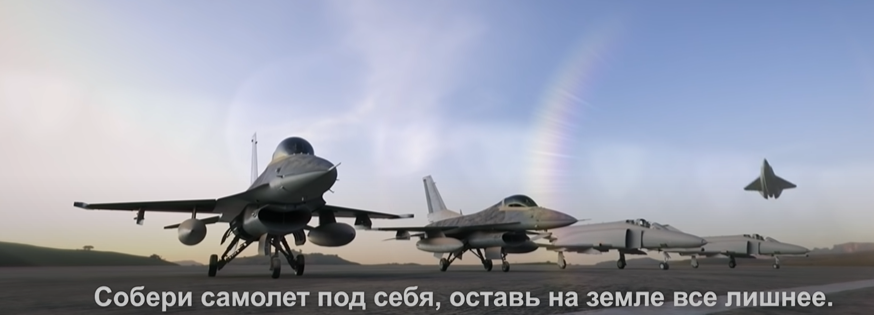
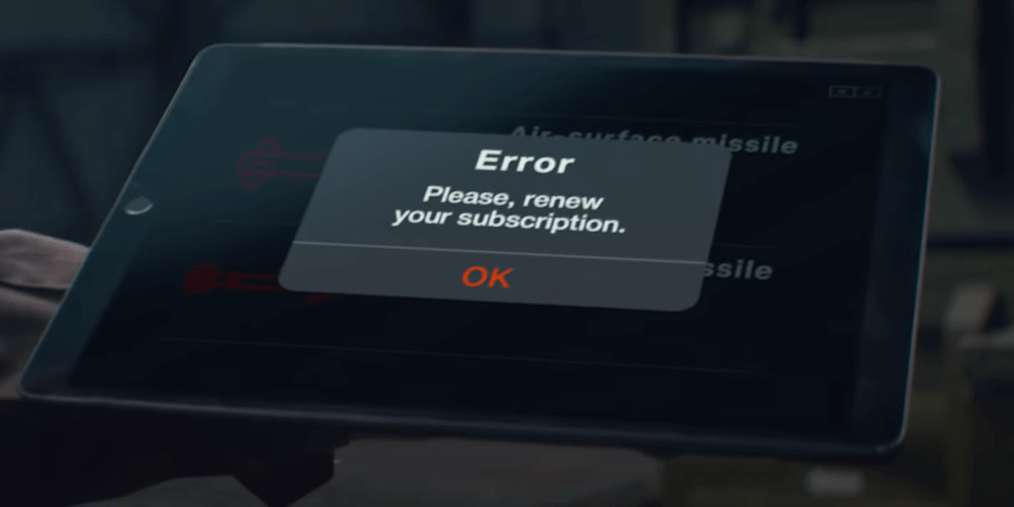
Amid all the hype, the matter of cost is just one of the questions that still surround this program. After all, the Checkmate appeared essentially out of nowhere amid a blaze of largely unconventional hype, and, so far, we have yet to see any actual, real hardware. On the other hand, if these latest statements check out, it would seem that this new fighter is at least heading toward flight testing. With the prospect of potential customer interest at home and aboard, the Checkmate might have a fighting chance at becoming an operational reality.
Contact the author: thomas@thedrive.com
